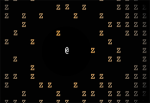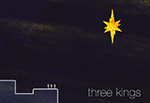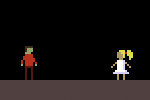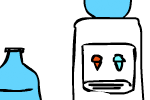A few months ago I saw a question on reddit (in the /r/gamedesign subreddit) asking about useful books on psychology for game designers. At the time I had just finished a book on Jung and had been thinking a lot about how idea of the collective unconscious can be used in game design – so I had a pretty good response ready.
I’m reposting it here for posterity:
First off, read anything by Carl Jung. His theories on archetypes and the collective unconscious form the groundwork upon which not only games, but the entire modern entertainment industry are built.
Basically Jung argues that there is a collective set of symbols and ideas that all humans, regardless of culture or upbringing will respond to. Understanding these symbols, and building your game around them – either as mechanics or story – allows you to influence how the player will respond.
Jung: A Very Short Introduction is a pretty easy way to get started. After you read that I’d suggest getting into the meat of Jung’s own words with The Portable Jung (coincidentally edited by Joseph Campbell)
And with that, you should also read The Hero with a Thousand Faces by Joseph Campbell. He takes Jung’s ideas, and shows the specific symbols used in the Hero’s Journey – one of the most common story types. People talk about the Hero’s Journey all the time – but it’s a really important concept to understand if you’re doing any sort of creative works. Here are two quick video primers on it:
A more serious one: Ted Ed: What Makes a Hero
A more awesome one: Glove and Boots: The Hero’s Journey 🙂
If you want to go further on the narrative route I’d also suggest The Seven Basic Plots by Christopher Booker. He takes the Hero’s Journey and shows how it is just one of several different plot archetypes, all of which have their own internal path, rules, and idiosyncrasies.
Now, in case you’re thinking “Why are you sharing these books about narrative with me? Games are not stories!” remember that people have been responding to stories for all time – and good storytellers are masters at making people feel the desired emotion at the desired time.
Therefore I’d also direct you to Story By Robert McGee as well as Poetics by Aristotle. Both of these books look at story in a mechanical sense, and explain the precise methods storytellers (both ancient Greek ones and modern Hollywood ones) use to evoke emotions in the audience. These principles almost directly translate to game design.
After that I’d suggest looking at Chris Crawford’s list of books all game designers should read. Unfortunately I can’t find a copy of the list on the internet, but it’s at the end of his book Chris Crawford on Game Design
…
I forgot to include Homo Ludens by Johan Huizinga. It’s an older book, with more of an anthropological bent, but explains the psychology of play really well. It’s also where the concept of the “magic circle” – i.e. the semi-separated game space where we act according to a different set of rules than in real life – comes from.






